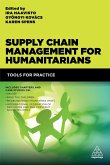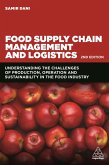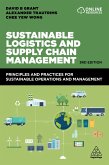In rapidly developing emergencies, it is vital for aid agencies to understand how to establish an agile supply chain that resists the chaos of a crisis and can cater to unknown needs.
Now in its fourth edition, Humanitarian Logistics presents chapters from a wide range of academics and practitioners and offers cutting edge research into how complex problems such as distribution of the COVID-19 vaccine and provision of relief to victims of natural disasters can be solved. New chapters cover topics such as cash-based humanitarian logistics (HL) systems, sustainability in a HL context and providing logistics services for humanitarian relief.
In recent years, a number of global crises have highlighted the critical role that logistics plays in humanitarian response. There is a vital need to understand how to conduct operations in confused and swiftly changing environments. This book is essential reading for anyone who needs to understand how to effectively manage supply networks during a rapidly developing emergency.
Now in its fourth edition, Humanitarian Logistics presents chapters from a wide range of academics and practitioners and offers cutting edge research into how complex problems such as distribution of the COVID-19 vaccine and provision of relief to victims of natural disasters can be solved. New chapters cover topics such as cash-based humanitarian logistics (HL) systems, sustainability in a HL context and providing logistics services for humanitarian relief.
In recent years, a number of global crises have highlighted the critical role that logistics plays in humanitarian response. There is a vital need to understand how to conduct operations in confused and swiftly changing environments. This book is essential reading for anyone who needs to understand how to effectively manage supply networks during a rapidly developing emergency.









